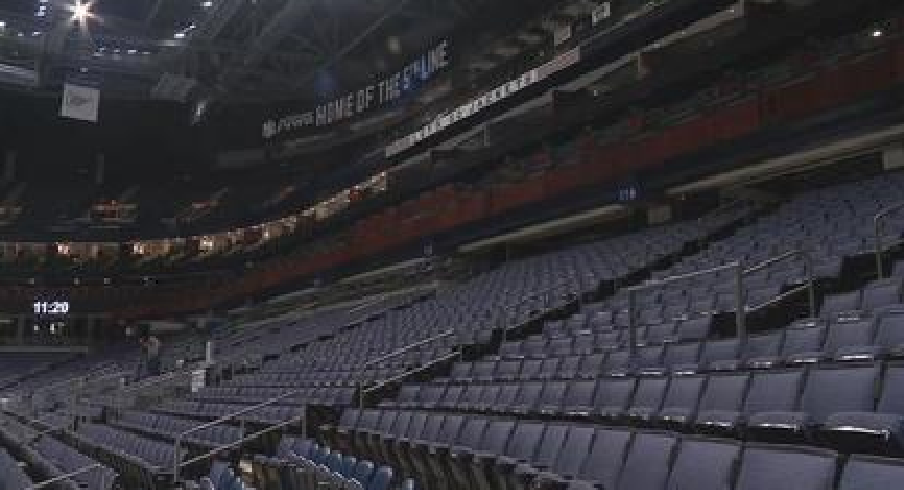With each passing day, the hopes of a Jan. 1 start to the 2020-2021 (or, just 2021) NHL season seem less likely.
The original thought was that a deal would need to be in place by roughly Thanksgiving in order to make that date a reality.
Quarantines would be needed. Players abroad – some of who are playing in other leagues – would need to come back. At least two weeks would be needed for training camp, and even longer if you take into consideration that the seven teams who missed the postseason bubble were told they would get an extended camp.
Those issues are complicated enough as it is, but according to Greg Wyshynski and Emily Kaplan of ESPN, several new concerns have popped up, and it could spell trouble for the NHL.
Wyshynski is reporting that that a Monday call between the NHL and the players' association (the NHLPA) were informed of a pair of proposed changes to the collective bargaining agreement that was agreed on before last season was completed. These proposed changes center around deferred compensation and escrow increases, which hasn't exactly been met warmly by the union.
One unnamed player was upset, saying: "It's what we agreed on for the next six years. Why do we have to change it again?"
The NHLPA is working to send a response back to the league owners, but this does not sound like an issue that will see a quick or tidy resolution.
Meanwhile, Kaplan claims that multiple team owners are opposed to holding a season at all without having fans in the building, as they would operate under substantial losses. A source familiar with these conversations tells Kaplan that Bettman has told them no season is "not an option."
One bright spot that may appease owners is that the league seems to be completely detached from any idea of playing with regional bubbles, something that until recently had been on the table. Instead, the league is focused on a divisional realignment to minimize travel, and one that very likely will see series of games, similar to Major League Baseball. This would allow, at least some for some owners, a minimal number of fans in the building, with the potential for more fans (or some fans, for previously empty arenas) as the season goes on.
As of now, all indications are that the Columbus Blue Jackets will be in a "central" division alongside Chicago, Detroit, Florida, Nashville, Pittsburgh, St. Louis, and Tampa Bay. Florida and Tampa are a bit of out of place in an otherwise midwestern division, but geographically is the best fit, when you consider that the seven Canadian teams are in one division, the western half of the United States is in another, and the northeastern United States teams are grouped in a third.
It is also likely that play will be strictly divisional this season, with series of games to minimize travel. Multiple reports have indicated that the NHL is targeting a roughly 60-game season. No schedule has been released, but to provide some context on what the Blue Jackets schedule may look like, here's a visual:
- Home for a two-game series against Detroit on a Monday and Tuesday
- Off Wednesday and Thursday
- Home for a two-game series against St. Louis on Thursday and Friday
- Off Saturday, Sunday, and Monday
- On the road for a two-game series against Tampa Bay on Tuesday and Wednesday
- Off Thursday and Friday
- On the road for a two-game series against Florida on Saturday and Sunday.
With seven divisional opponents to play, playing each team eight times (two sets of two at home, and two sets of two on the road) would be 56 games – a good number around the leagues 60-game target for an early January start. If the league hopes to start the playoffs by the beginning of May, which they intend to do so that the playoffs end prior to the Olympics in July, this would mean playing roughly three to four games a week between early January and the end of April – which is the above idea gives us.
As the league is focused on a traditional 16-team playoff, it would seem that the top four teams would make the postseason and perhaps play each other in a 1-4, 2-3 set-up. To minimize travel, it's likely that the first two rounds will be played strictly within the division.
What would that look like for the Blue Jackets postseason odds? Let's hand Tampa Bay and St. Louis two of those spots, and let's assume that Detroit won't be strong enough to compete. That leaves two spots for five teams: Columbus, Chicago, Florida, Nashville, and Pittsburgh.
Game on.
All of this, of course, is flexible. First things first, though: the league and the players need to come to an agreement (soon) if we're to see hockey to start the new year.


